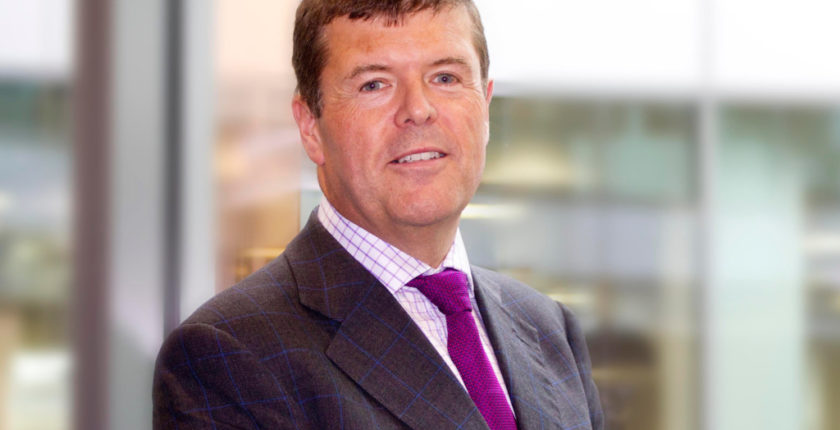SCIE Chair Paul Burstow calls for health and social care parity
[ad_1]
In the wake of the publication of the CQC’s State of Care report last month, chair Paul Burstow explains what Social Care Institute for Excellence (SCIE) is doing to help improve health and social care integration.
The CQC’s latest annual State of Care spoke powerfully about ‘care injustice’ where people’s experience of care was determined by their access to varying degrees of health and care integration, what CEO Ian Trenholm called the ‘integration lottery’.
Over the past 12 months, SCIE has been working with the CQC on its local systems reviews on health and social care, targeted at challenged areas with issues around problems such as transfers of care.

Advertisement
“One of things that comes across very strongly is very often there’s not a shared understanding of what the numbers are telling us,” Paul highlighted.
“There’s not a strong set of relationships between the leaders in the systems. There’s not a culture of collaborative working at the middle management levels.
“The independent providers in the sector often don’t have a seat at the table so their perspective in resilience planning for winter and in trying to make sure the system is generally joined up is not there.
“On the back of that, we have been brokering the sort of support that can help the system move towards a much better way of working.”
SCIE has also been commissioned by the DHSC to develop an integration logic model, which means describing what the ideal of an integrated care system is from the point of view of end users and health and care professionals.
“We need to have multi-disciplinary teams,” Paul stressed.
“They are key part of helping systems work more effectively. You need to drop the institutional boundaries and think about the person in front of you and their needs and the outcome you are trying to support them to achieve. We are working to develop some diagnostic tools and local systems to apply this model into practice. I think that could make a big difference.”
Paul highlighted that the lack of parity and esteem between the NHS and social care was a real barrier to more effective integration.
“I think we are still long way off Government treating health and social care with parity,” he said.
“We have just had more than £20bn of extra funding announced for the NHS over a five year period and saw £240m for social care. It’s welcome extra money but just a sticking plaster rather than a long term commitment.”
On the plus side, Paul said there was a growing recognition, thanks to work by bodies such as the CQC, that the sustainability of the NHS is dependent on a properly functioning social care system.
Paul added that recruitment and recognition was another glaring area where social care has struggled to achieve parity with the NHS.
“We have just seen a massive NHS recruitment drive,” he said.
“There is a lack of parity and esteem between recruitment drives for social care and the NHS.
“That has to begin to change if we are serious about making this an attractive place to work. There’s no doubt that pay and conditions play a really important part in shaping attitudes to working in the sector.
“We will have to acknowledge that we are currently not putting enough money into delivering decent care for people at any point of their lives and people are voting with their feet and not working in the sector. Social care is still not seeing an attractive enough set of work roles. There need to be ways we can offer people career prospects with progression and development.”
The SCIE chair suggested the £1bn in accumulated Apprentice Levy funding which was lying untouched could provide a valuable source of income to fund greater training and development opportunities within the sector.
He described the publically funded end of social care as a “slow motion car crash” where the cost of labour and capital was not reflected in fees paid to providers.
“The risk we run in that is that people don’t stay in the workforce but also that we don’t get the modernisation and upgrading and replacement of the estate,” he said.
Paul highlighted that eight out of 10 care homes were 50 years old with only 16% of homes having access to WiFi.
He called on the Government to use the Green Paper as an opportunity to set the goal of putting WIFI in every care home.
He added that putting forward potential long term funding solutions should be the most important component of the Green Paper.
With the Green Paper having been delayed on numerous occasions, the SCIE chair said it was important for its credibility that the Government meet its pre-Christmas publication target.
He added that he would prefer a strong, clear Green Paper over a weak one, however, even if that meant delay into the new year.
Paul delivered the final sobering thought, that like most other areas, social care may be neglected due to the all-consuming attention required for Brexit.
“Brexit may be the thing that stops Government giving enough thought and time to being able to develop its approach to social care,” he told CHP.
“This potential loss of focus is a bit of a mess and the biggest price we are paying at the moment is that the bandwidth to do anything other than focus on Brexit is so limited that other areas don’t get the attention they rightly deserve.”
[ad_2]
Source link

